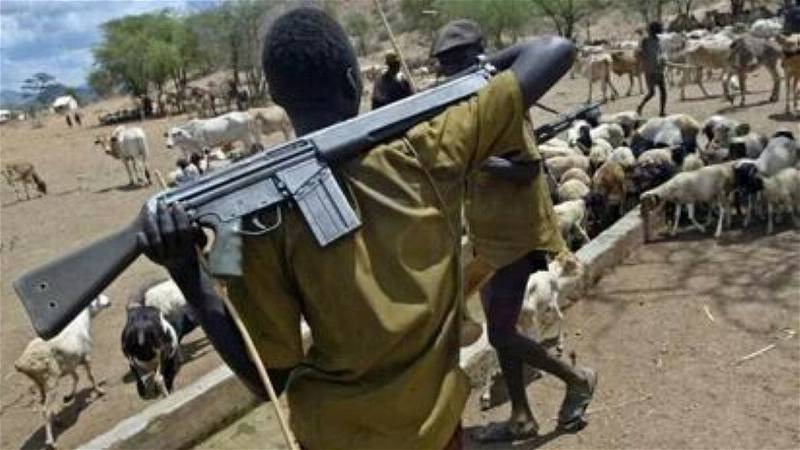Ayomidele Oluwasusi

The paramount ruler of Tyoshin Kingdom in Nigeria’s north-central state of Benue, HRH Ayua Abomtse, has raised alarm over the persistent attacks by armed herdsmen in his domain.
The traditional ruler lamented that the assailants had killed 67 of his subjects since January 2024 and recently destroyed over 20 hectares of his farmland, cultivated with guinea corn and cassava, worth millions of Naira.
He told a local news outlet that the armed herdsmen invaded his farm near Mbakpa Forest along the Naka-Agagbe road, wreaking havoc without restraint.
The Ter Tyoshin expressed concern over the impunity exhibited by the herders in Gwer West and other parts of the country, where killings and farm destruction occur unchecked.
The monarch warned that the country was reaching a critical breaking point if urgent action was not taken to address the activities of the armed herdsmen.
“In my domain alone, they have killed about 67 persons from January 2024 to Saturday, November 23. I have been documenting these tragedies, with Nagi village recording the highest casualties,” he told Vanguard newspaper.
The monarch accused security forces, particularly the military operation “Operation Whirl Stroke,” of turning a blind eye to the killings and destruction, suggesting that their inactivity had rendered them ineffective.
HRH Abomtse appealed to the Tinubu-led federal government to introduce state policing, saying that local communities would be better equipped to protect themselves against such threats.
“The time has come for the Federal Government to establish state police so that communities can police themselves. It should start at the council ward level to effectively curb the activities of these terrorists masquerading as herdsmen,” he stated.
The monarch urged the federal government to proscribe the unlawful activities of the armed herdsmen, labeling them as terrorists. He also called on the Inspector General of Police to establish a police unit in Nagi village to safeguard the lives and property of his people.
“My people are living at the mercy of killer herdsmen. The government must act decisively to end this nightmare,” he said.
HRH Ayua Abomtse’s plea underscores the dire security challenges faced by communities in Benue State, highlighting the urgent need for proactive measures to restore safety and peace in the region.
For more than a decade, civilians in Nigeria have faced multiple security threats and risk of atrocities as result of attacks, kidnappings and extortion by various non-state armed groups.
Since the start of 2024 civilians have faced intensified violence across Nigeria, and near-daily attacks by armed groups resulting in kidnappings and other abuses against civilians.
Armed groups and gangs, including so-called “bandits,” have – for many years – perpetrated widespread atrocities, including murder, rape, kidnapping, organized cattle-rustling and plunder. Armed herdsmen are also destroying vast swaths of farmland, prompting many farmers to abandon their land out of fear of attack.
The conflict between Fulani herdsmen and farmers in Nigeria has been a longstanding issue, resulting in violence and loss of lives.
The Fulani people are believed to be the largest semi-nomadic group globally, found across West and Central Africa. In Nigeria, some continue to live as semi-nomadic herders, while others have moved to cities. Unlike city dwellers, the nomadic groups spend most of their lives in the bush and are often involved in clashes with farming communities, and also engage in kidnapping for ransom. They herd their animals across vast areas, frequently clashing with local farmers.
The herders now bear sophisticated weapons and use them to terrorize many parts of the country, with security operatives ignoring many of the attacks for allegedly not getting orders to go after the criminals.
Several brutal attacks happened under former President Muhammadu Buhari, who was born to a Fulani family on 17 December 1942, in Daura, a town in Katsina State, northwest Nigeria.
The continuous unprovoked attacks triggered resistance in South-East region, inhabited by Igbo people and South-West region, inhabited by the Yoruba people.
A Yoruba activist and philanthropist, Chief Dr Sunday Adeyemo, aka Sunday Igboho, demanded end to the attacks that have cost lives of thousands. He asked the Fulani people to vacate all the forests in South-West Nigeria.
As the Akoni Oodua of Yorubaland, he is known for fighting for the rights of the Yorubas. He is currently advocating for a sovereign Yoruba country.
